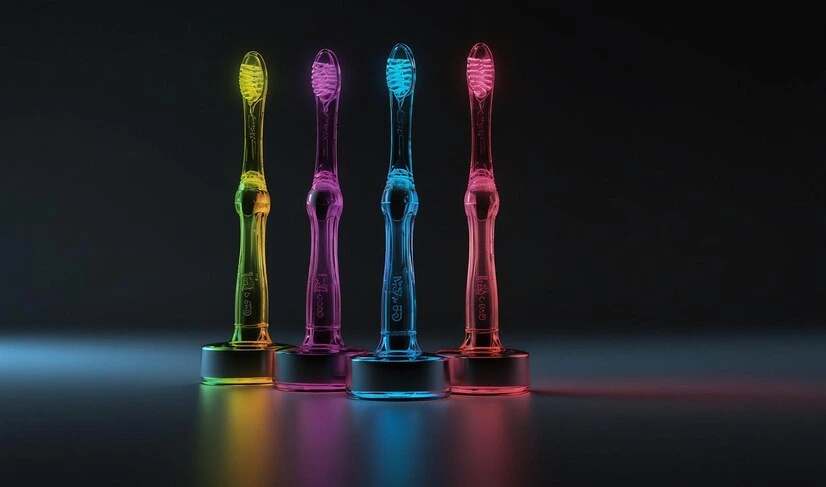Tooth pain can be excruciating. For many, the promise of a quick, permanent solution to kill tooth pain nerve in 3 seconds seems like a dream. But is it possible? Here, we’ll explore the reality of tooth pain, debunk common myths, and highlight genuine methods for providing lasting relief.
Understanding Tooth Pain: What Causes It?
Tooth pain typically stems from irritation or inflammation of the dental pulp, the soft tissue inside the tooth containing nerves and blood vessels. This pain can result from:
- Cavities: Bacteria erode the tooth enamel, exposing the nerve.
- Infection: Dental abscesses can cause intense pain.
- Tooth fracture: A cracked tooth can irritate the nerve.
- Gum disease: Inflammation of the gums can affect the surrounding bone and teeth.
In all of these cases, the nerves in the tooth become irritated, leading to discomfort.
Can You Kill a Tooth Pain Nerve in 3 Seconds Permanently?
The idea that you can permanently kill a tooth pain nerve in just a few seconds is misleading. While certain home remedies may offer immediate relief, there’s no instant permanent solution without professional dental intervention. Here’s why:
- The nerve causing tooth pain is deep inside the tooth.
- The pain is usually a sign of an underlying problem that needs to be treated.
To achieve permanent relief, a dentist typically needs to perform specific procedures.
Immediate Relief for Tooth Pain
While killing the nerve in 3 seconds may not be feasible, there are fast-acting remedies that can alleviate pain temporarily. These methods can help manage discomfort until you visit a dentist:
Clove Oil
Clove oil has been utilized for centuries as a natural anesthetic. It contains eugenol, which can numb the affected area and reduce inflammation. To use, apply a few drops of clove oil to a cotton ball and place it directly on the painful tooth.
Cold Compress
Using a cold compress can help alleviate pain and minimize swelling. Hold the compress against the cheek near the affected tooth for 15-20 minutes at a time.
Saltwater Rinse
A warm saltwater rinse can reduce inflammation and help clean the area around the painful tooth. Mix one teaspoon of salt in a glass of warm water and swish it around your mouth for relief.

Permanent Solutions for Killing a Tooth Nerve
To permanently solve the issue and stop the nerve from causing pain, the following treatments are required:
Root Canal Treatment
A root canal is the most effective way to permanently kill the nerve in an infected or damaged tooth. During this procedure, a dentist removes the inflamed or infected pulp, cleans the inside of the tooth, and seals it. This treatment eliminates the nerve causing pain and prevents future infections.
Tooth Extraction
If the tooth is beyond repair, extraction may be required. This involves completely removing the tooth, which permanently eliminates the source of the nerve pain.
Dental Crown
If the tooth’s structure is compromised, a dental crown may be placed over it after a root canal to protect it from further damage.
Myths About Killing Tooth Pain Nerves
Many myths surround quick fixes for tooth pain. Some common misconceptions include:
- Alcohol as a painkiller: Swishing alcohol may dull the pain temporarily, but it can cause irritation and does not address the root cause.
- Garlic: While garlic has antimicrobial properties, it won’t kill the nerve or stop severe tooth pain.
- Crushing aspirin on the tooth: Placing aspirin directly on the tooth can cause burns to your gums but won’t solve the problem.
When Should You See a Dentist?
If you’re experiencing persistent tooth pain, it’s crucial to visit a dentist as soon as possible. Ignoring the pain or relying on temporary solutions can lead to more severe complications like infections or tooth loss.
Seek immediate dental care if you notice:
- Intense, throbbing pain that doesn’t subside
- Swelling around the tooth or gums
- Fever or a bad taste in your mouth, which may signal an infection
Conclusion: No Instant Fix, But Long-Term Relief Is Possible
While it’s unlikely you can kill a tooth nerve in 3 seconds, understanding the right treatments can provide fast pain relief and lead to permanent solutions. Whether using home remedies like clove oil or seeing your dentist for a root canal, managing tooth pain effectively is about addressing the underlying cause rather than just the symptoms.
For lasting relief, seek professional advice from a dentist who can recommend the best course of action.




Leave a Reply